In 1909, Extension magazine published the words of one of the first Black priests ordained in the United States, Father John Plantevigne, as he spoke at a missionary conference in Washington, D.C. Pictured below, he said, “The Negro shall be treated as a man and not a problem.”
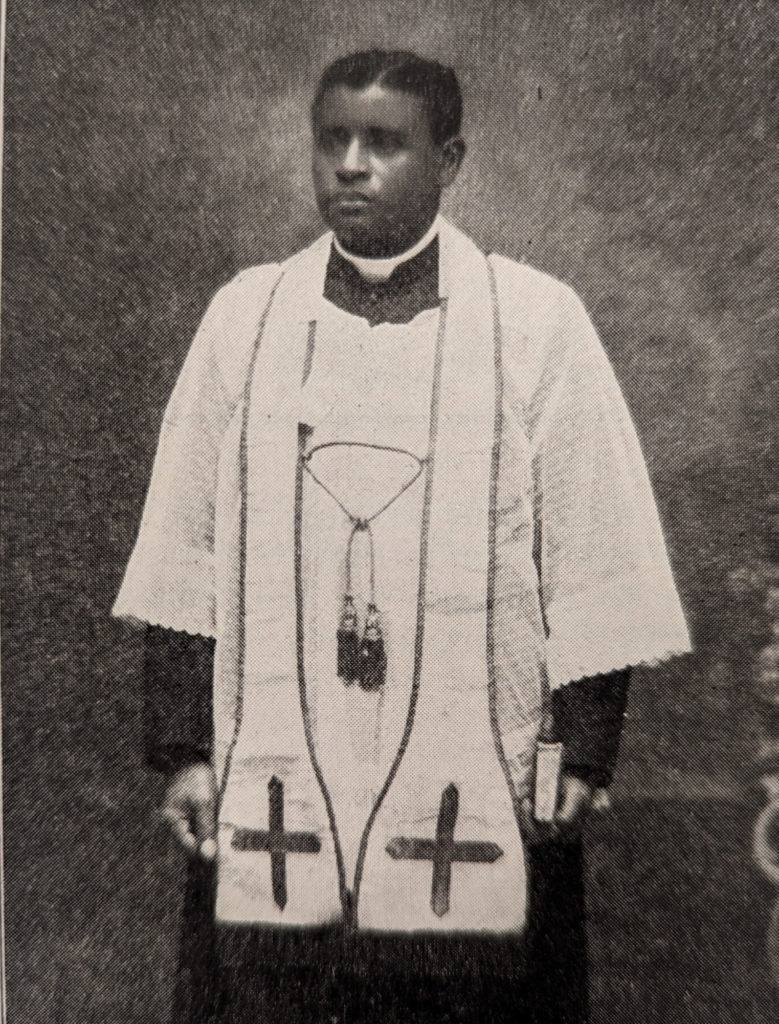
His statement, sadly, would have been met with much skepticism by many Catholics at the time.
The pastor belonged to St. Joseph’s Society of the Sacred Heart, a religious order better known as the Josephites that was originally founded in England. They stood in solidarity with the Black community, and established their presence in the U.S. right after the Civil War to serve newly emancipated slaves. In the late 1800s the Josephites became an independent American Catholic order.
Catholic Extension Society has supported the work of the Josephites for over a century as they ministered to Black Catholics.
At a time when seminaries refused to accept Black students and Southern Catholic churches followed Jim Crow laws, which forced many indignities upon Black Catholics, the Josephites took an alternative approach.
Extension magazine printed letters from Josephite priests, hoping that their voices and perspectives would help change people’s hearts.
For example, Father John J. Albert, SSJ, wrote this in an article on how the Church discriminated against Black Americans:
“The Church should be what it professes to be—Catholic. … It is not the private property of a single race—it is Catholic. As such, any tendency toward exclusiveness should be immediately booed. What right have we to make pharisaical distinctions in the House of God?”
Close to the altar
The Josephites established churches specifically for Black Catholics to provide worship spaces free of prejudice. The photo below, which was printed in Extension magazine in 1909, shows a Josephite pastor with parishioners.
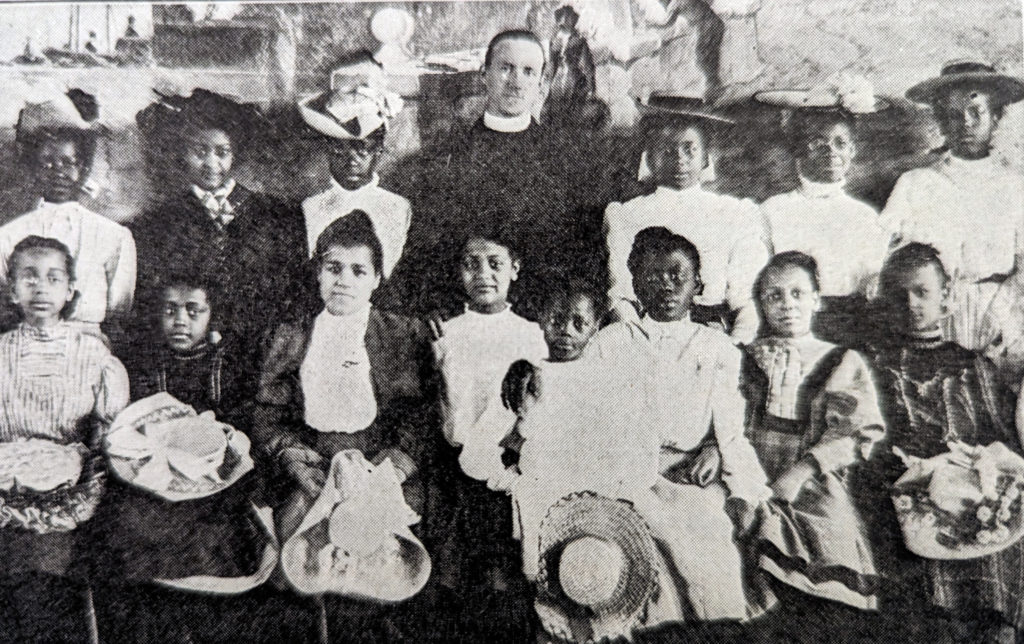
Father Albert wrote that in these churches “the colored Catholic gives free scope to a growing Faith. The children sing in the choir; the boys serve on the altar and all of them have equal opportunities of seeing and hearing and praying to their heart’s content.”
Their early vision came to fruition through their 150 years of tireless, faith-driven work. They established parishes, schools, a seminary and an interracial community of priests. They founded what has become the largest Black Catholic fraternal organization of men and women in the country, the Knights and Ladies of Peter Claver.
Their current superior general, Bishop John Ricard, SSJ, put it simply:
If not for the Josephites, there would be very few Black Catholics.”
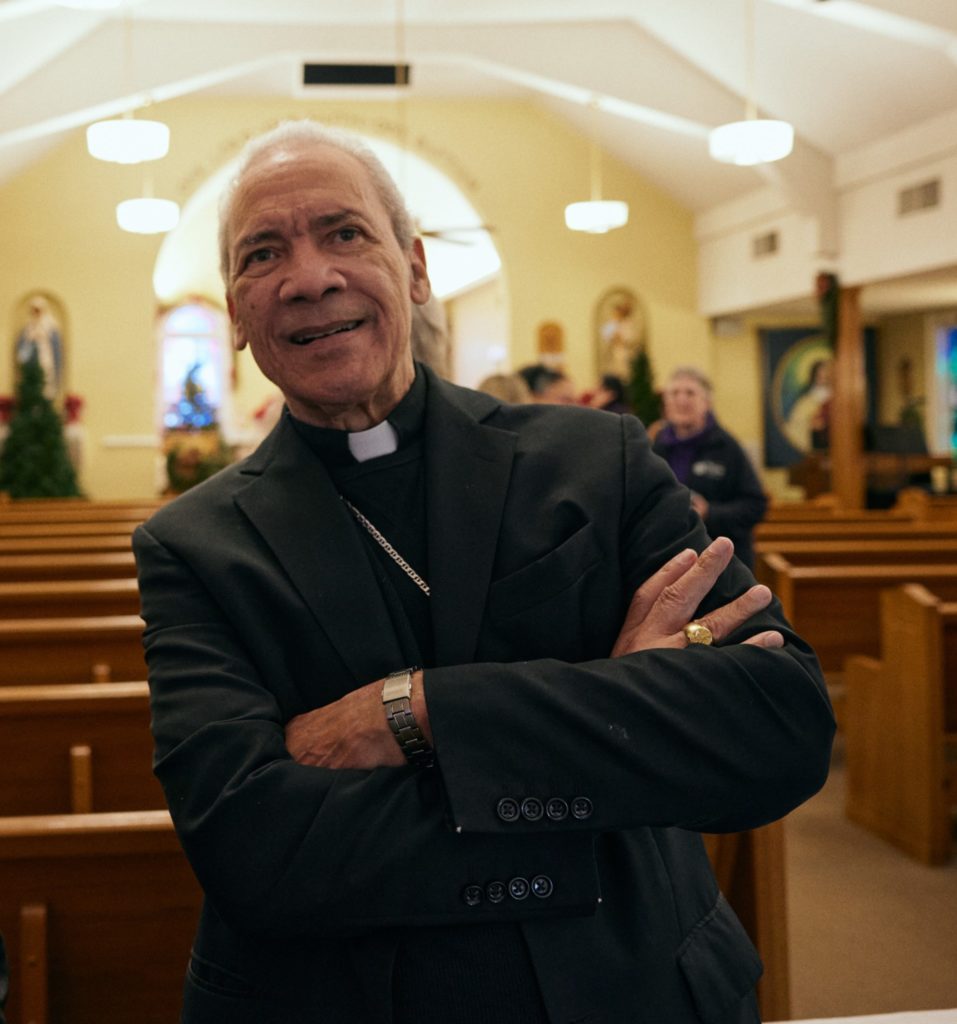
Catholic Extension Society has been working in solidarity with the Josephites, mostly in the Deep South. We helped to build or repair their churches, support religious education for children, and simply keep the doors of their vibrant parishes open.
Empowering generations
Following the Emancipation, millions of formerly enslaved people were forced to continue to labor in poverty in the fields without the means to improve their lives. “It was a huge challenge at the time,” said Bishop Ricard.
In response, the Josephites opened the first Catholic schools for Black students. They worked with orders of women religious such as the Sisters of the Blessed Sacrament, founded by St. Katharine Drexel, to staff the schools.
The community has served over 170 parishes in over 35 dioceses throughout the U.S. The education and care provided in these missions transformed entire families and communities.
The churches and schools gave their children, and their children’s children, a chance at a better life.
Many prominent Black leaders today come from families that have been going to Josephite parishes for generations. Archbishop Shelton Fabre of the Archdiocese of Louisville, Kentucky, a prominent Black Catholic leader, grew up going to St. Augustine Church in New Roads, Louisiana. The Josephites founded the church in 1922. Catholic Extension Society has supported it.
The Josephite missions, largely based in the South, brought nationwide influence. Millions of Black Americans carried their faith with them as they moved north during the Great Migration. Today, Black Catholics across the country trace their roots back to Josephite-founded parishes.
Passing the baton
Josephite parishes today are places of light and joy in their communities.
Bishop Louis Kihneman shepherds the Diocese of Biloxi, Mississippi, which includes six historically Black parishes. The Josephites founded four of them. “I just love to celebrate with them,” he said.
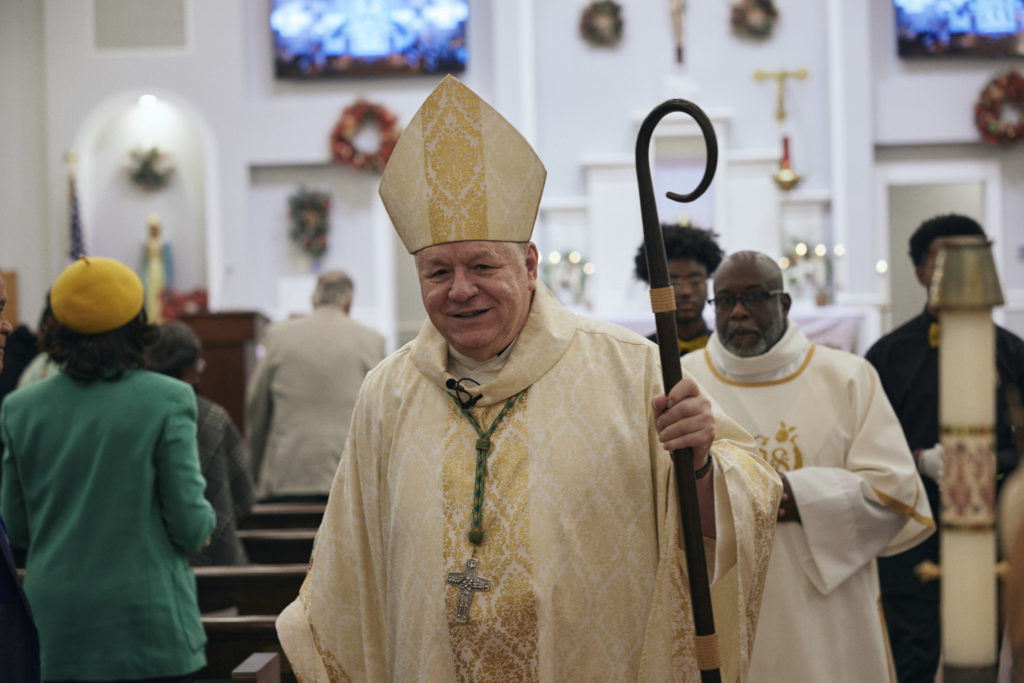
They really bring a tradition of faith, which I think in many ways helps us as a Church at large to stay alive in the spirit, because they’re very spirit filled.”
In January of this year he celebrated Mass at St. Peter the Apostle Church in Pascagoula, pictured below.
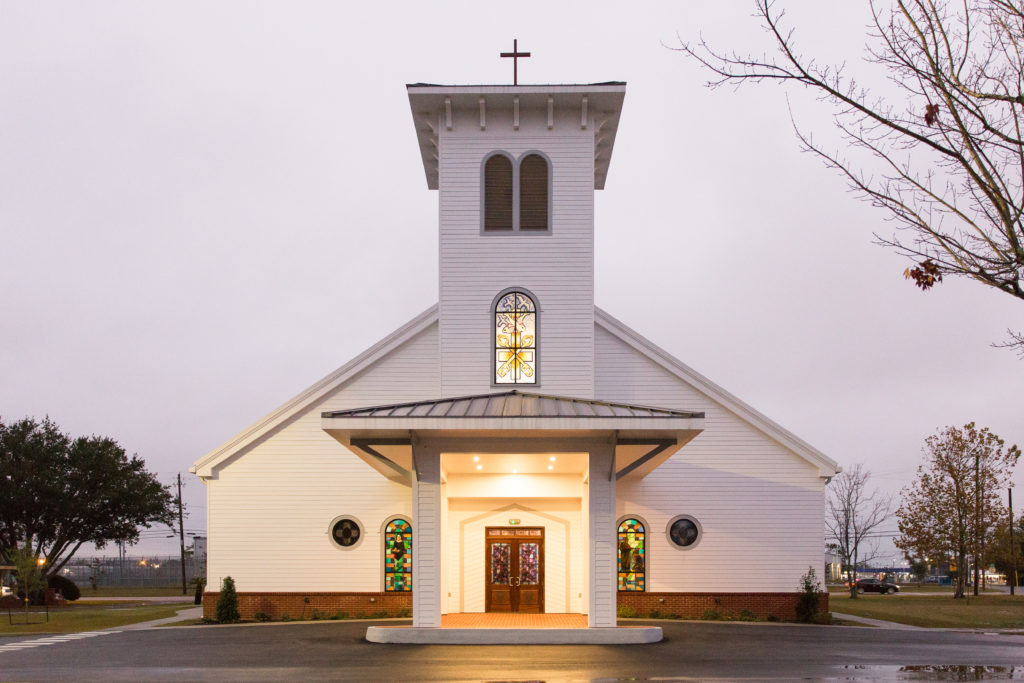
Hurricane Katrina completely destroyed the parish’s church in 2005. Catholic Extension Society helped construct a new, larger church—modeled after the original design—later in 2018.
In the photo below, the Catholic Extension Society plaque commemorating our support of the new church can be seen behind a young altar server.
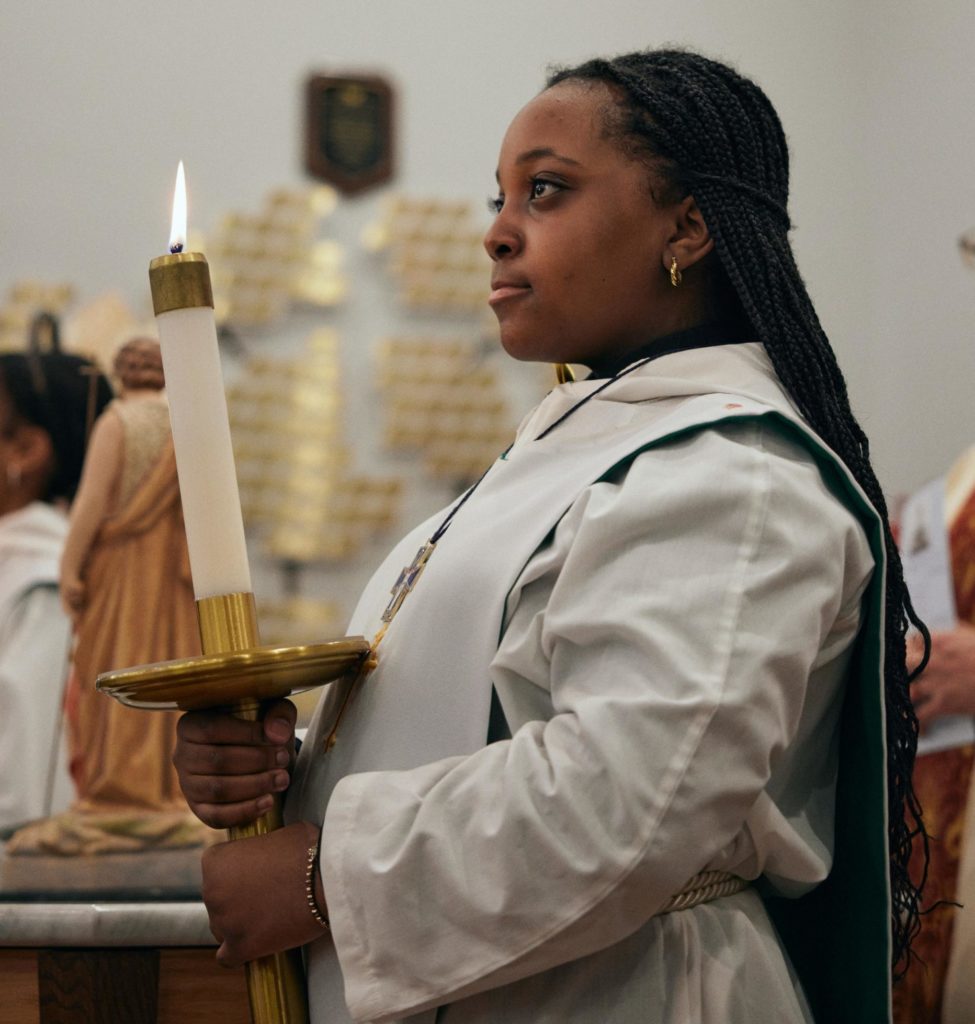
Bishop Kihneman said “parishioners were dancing in the aisles” after the construction.
Another Josephite parish in Mississippi is equally vibrant. St. Therese of Lisieux in Gulfport, established in 1932, draws people because of its warmth and family-oriented atmosphere.
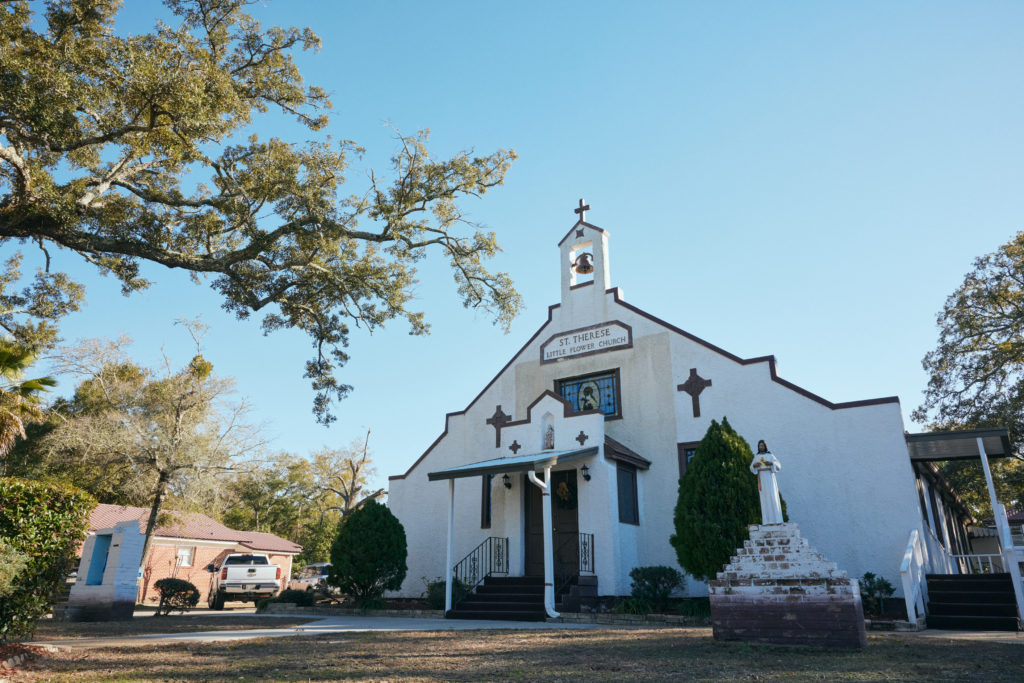
The parishioners have great love and appreciation for their Josephite pastors. Parishioner Marsha Lowe said, “The Josephite priests are priests who made some really serious sacrifices.”
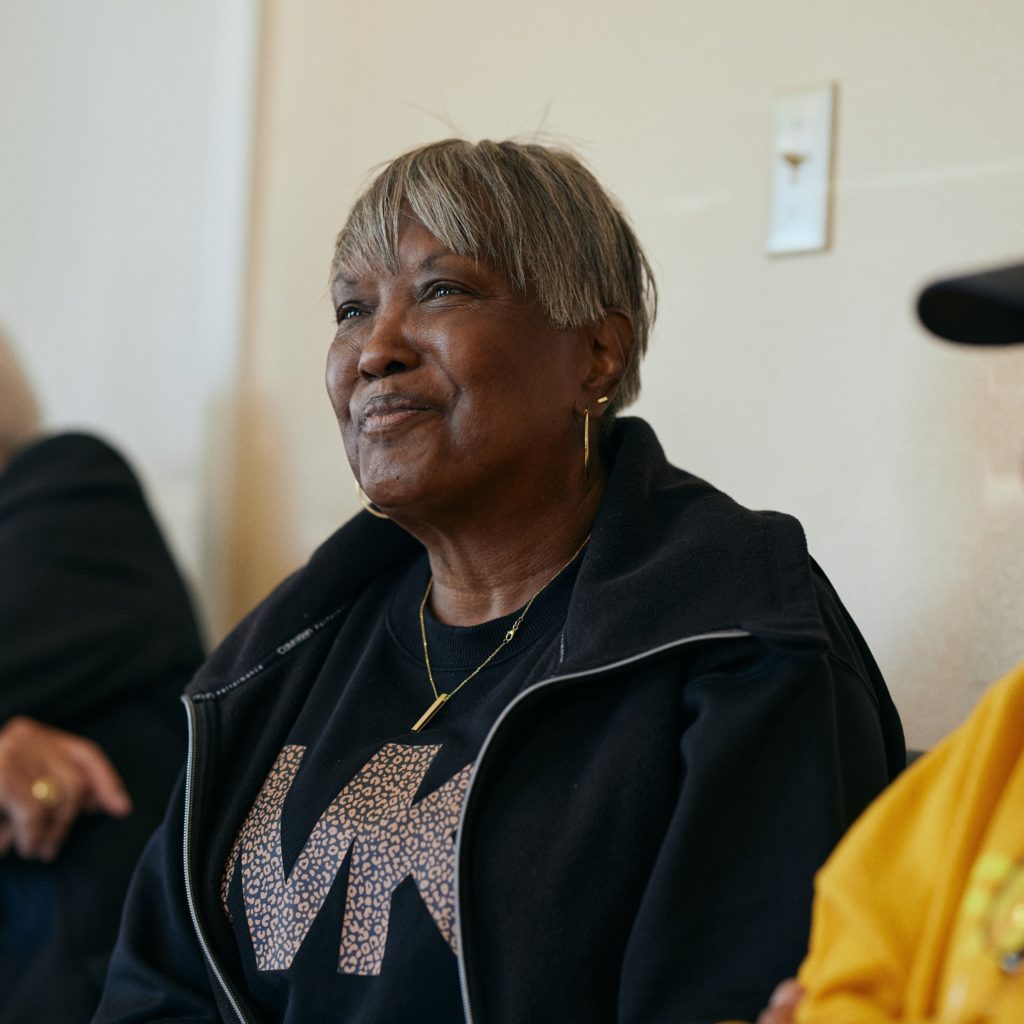
They were put in areas that no one would have gone to.”
The Gulfport parish has been a safe haven for decades. Today it continues outreach through community events and a food pantry.
Parishioner Robert Thomas sees a vibrant future in the church through the engaged youth.
It’s good to see the young kids coming through. We can pass the baton.”
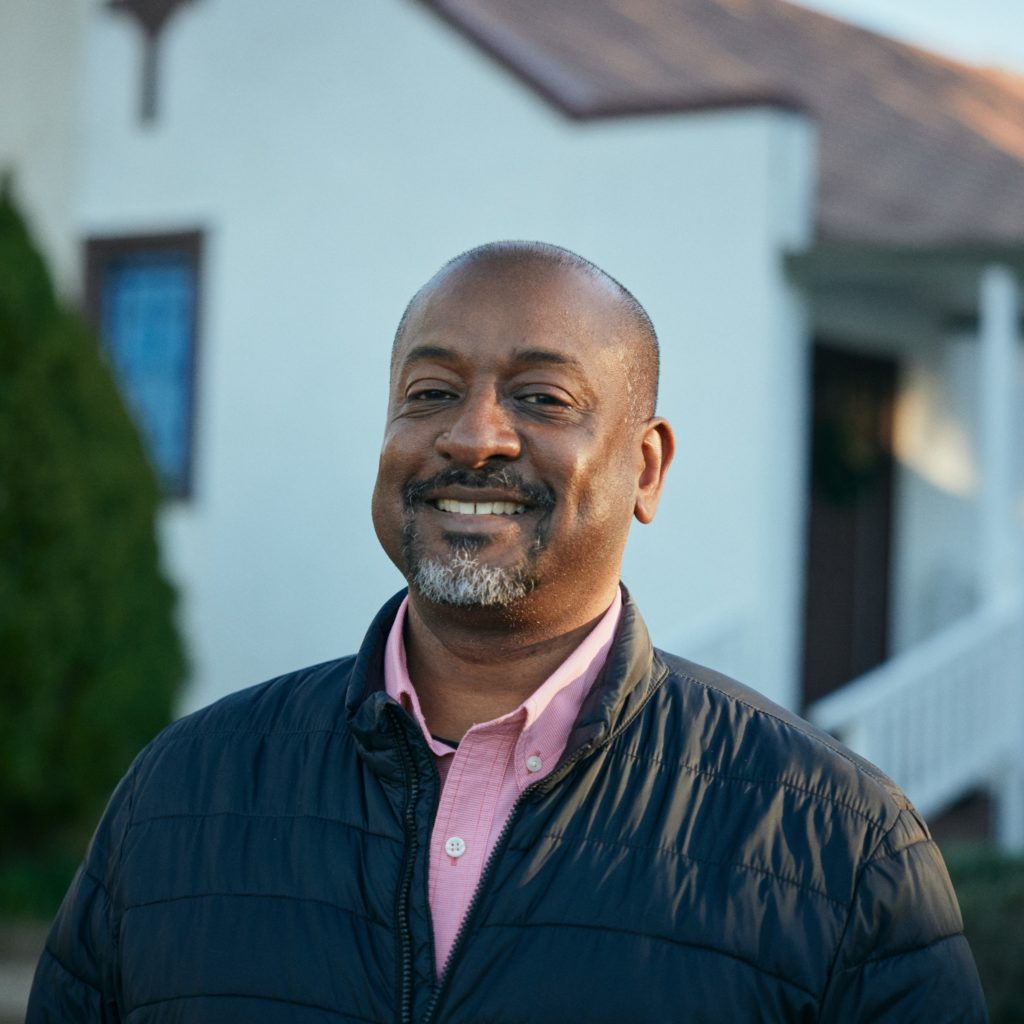
He continued,
“They are going out and visiting the sick, reaching out to the community. They understand the importance of what this church meant in the past and what it can mean for them in the future.”
Through our Parish Partnership program, a church in Belleview, Florida—also named after St. Therese—is supporting this Josephite parish. They are helping to renovate the church to make it more accessible, including adding indoor bathrooms at their parish, which will be especially helpful to elderly parishioners.
Father Tom Connery, pastor of St. Theresa in Florida, visited the “sister parish.” He met parishioners such as Gayla Evans-Jordan, pictured below. Their deep faith and heartfelt welcome struck him. “We found God’s presence there,” he said.
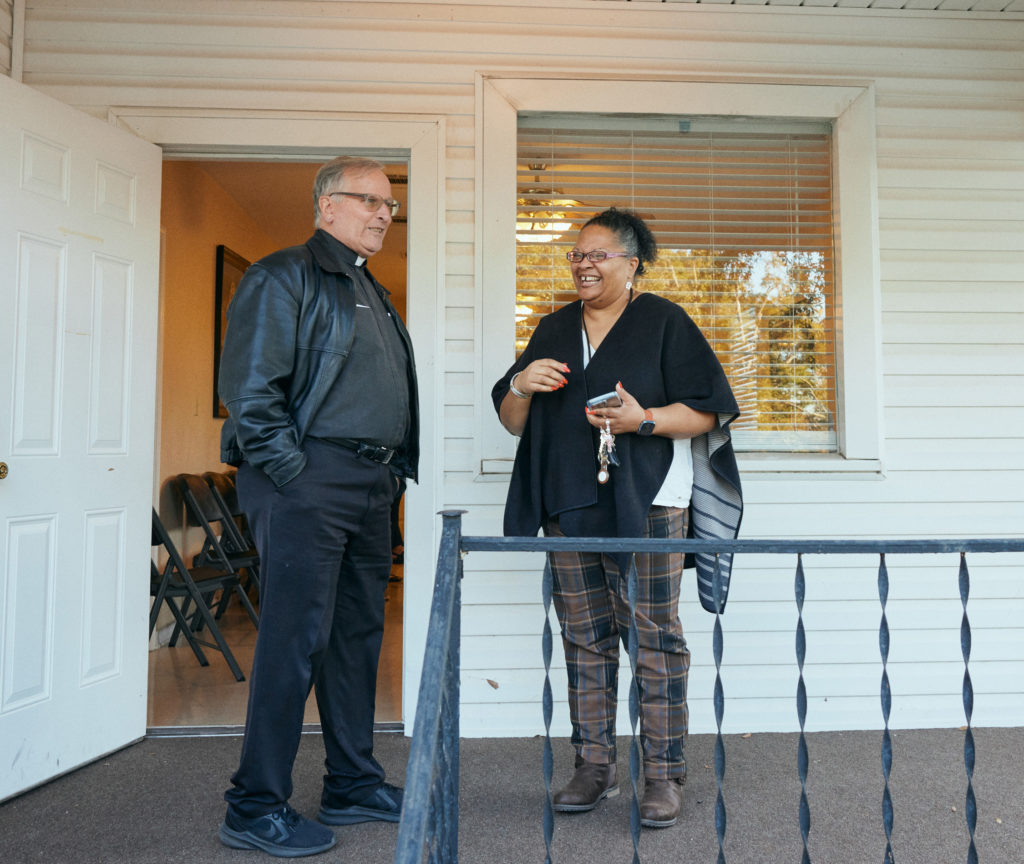
Bishop Kihneman said the partnership has “enabled the people to have the sense that the Church is behind them and that the Church is ready to walk with them.”
The Josephite mission moves forward
In Mobile, Alabama, another Josephite church has a rich history and bright future. Most Pure Heart of Mary Church, built in 1908, harbored organizers and activists during the Civil Rights Movement. This included Martin Luther King Jr.
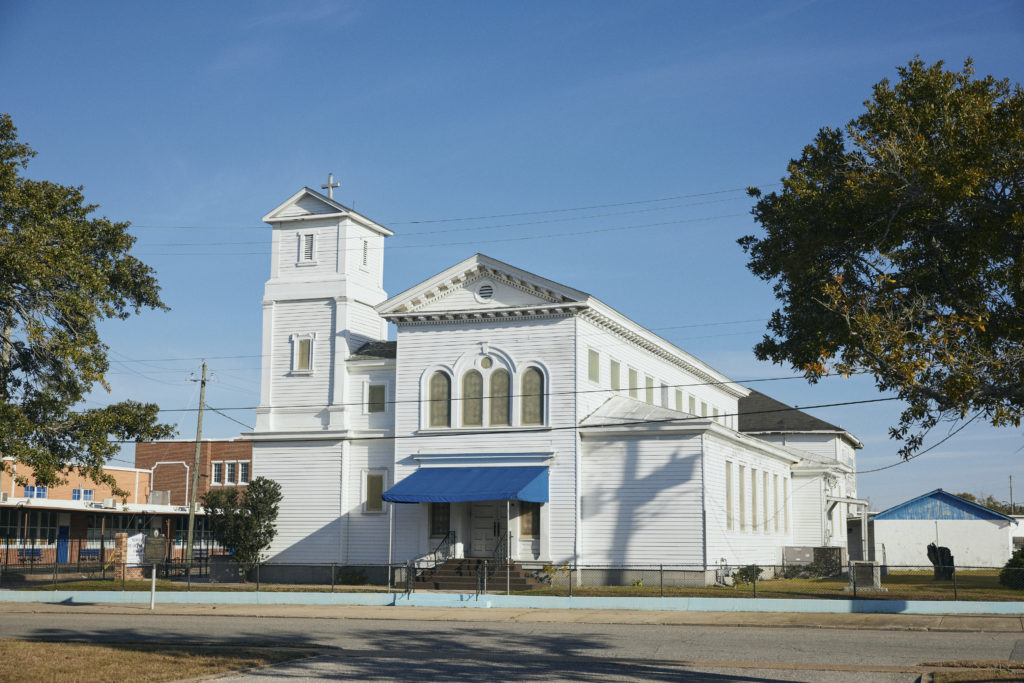
Deacon James Bryant, pictured below, has served there for decades. He was born in 1942. His ancestors were enslaved and picked cotton. In his youth he played baseball with Major League Baseball Hall-of-Famer Hank Aaron.
The deacon grew up witnessing the violence and lynchings instigated by the Ku Klux Klan.
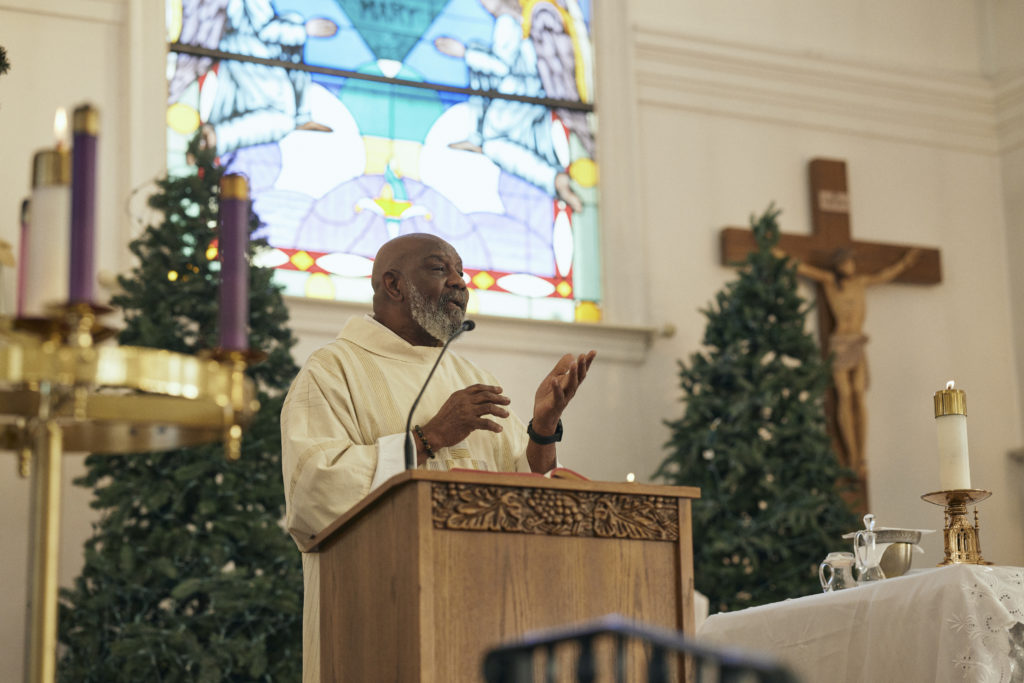
The former Southern Baptist converted to Catholicism after his son began attending a Catholic school. Deacon Bryant was moved by the real presence of Christ being in the Eucharist.
Today, the parish’s school, located around the corner attracts families from many surrounding areas seeking quality education in a faith-filled environment.
Deacon Bryant’s own numerous grandchildren attend the school. He teaches them and their classmates, pictured below, about the history of the Josephites and how to carry on their work advancing faith and social justice for Black Americans.

“We’re still here,” he said. “We’re still being blessed.”
Today, families worshipping in Josephite parishes continue to fill their beloved churches with praise and gratitude. They walk with the Josephite priests, who are determinedly carrying on the mission they began 150 years ago.
Catholic Extension Society works in solidarity with people to build up vibrant and transformative Catholic faith communities among the poor in the poorest regions of America. Please support our mission!


